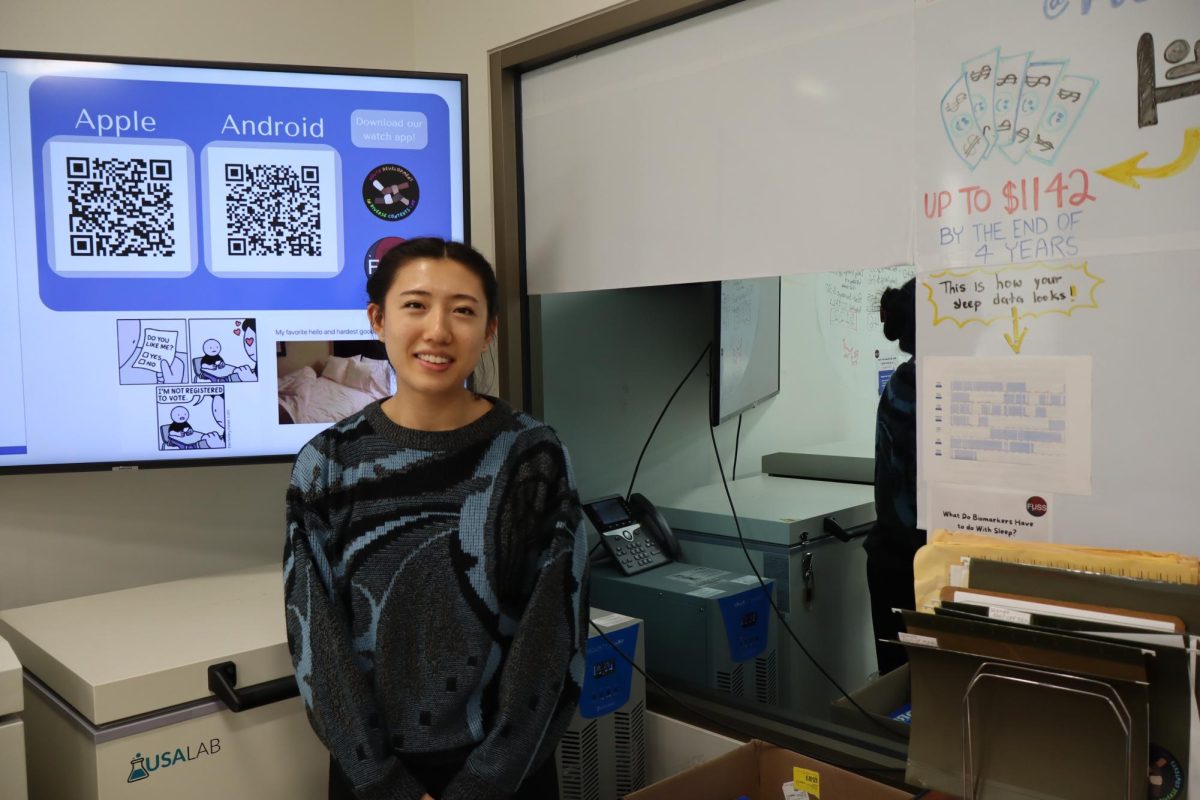Stephania Lopez, FCRH ’26, is researching how geriatric patients manage their chronic illnesses while navigating medical systems in their non-native language. Lopez began working under the guidance of Dr. Rachel Annunziato, Ph.D., associate dean for strategic initiatives at Fordham, in her Pediatric Health and Behavior lab during the second semester of her freshman year, working with pediatric liver transplant patients as a research assistant.
“My research looks at how language barriers impact whether patients with cardiovascular disease truly stick to their treatment plans,” said Lopez.
Lopez works with Spanish-speaking patients in Elmhurst, Queens, in collaboration with Elmhurst Hospital Center and Mount Sinai Hospital. While the broader research team focuses on medication adherence data, Lopez conducts a secondary analysis to better understand the factors at play.
“This is an intervention,” she explained. “In essence, it’s a structured effort by researchers to identify where patients are struggling — whether with medication adherence or broader aspects of their care — and to implement strategies that can meaningfully improve their health outcomes. It’s about stepping into the process, not just to observe, but to support and ultimately empower patients to better manage their conditions.”
Lopez joined the telehealth study in collaboration with Mount Sinai and Elmhurst Hospital Center, which aims to help elderly, bilingual patients to manage chronic illnesses like hypertension and cholesterol. As a research assistant for Annunziato, she listened to recordings of these interventions. She listened to clinical practitioners calling patients and asking them a series of questions relating to their medical adherence. As she listened to interventions conducted with Spanish-speaking patients, she realized the question did not ask how language is used, as Spanish-speaking patients had interpreters, a ‘middleman.”’ As for English-speaking patients, it was interventionists and the patient.
“I’m curious to see how having that interpreter can affect medication adherence,” Lopez noted.
In her role, she conducts preliminary analyses comparing trends like blood pressure control and patient satisfaction between two groups — those with access to interpretation services and those without.
While both groups reported similar levels of satisfaction, the data revealed a key distinction: Spanish-speaking patients experienced poorer blood pressure control by the end of the study. This finding raises important questions about the deeper, perhaps less visible, impact of language barriers on long-term health outcomes.
Lopez is set to continue her research this summer through the Fordham Undergraduate Research Program, where she will expand her work with a focus on qualitative analysis. “I’ll be transcribing audio recordings, paying close attention to language, tone, word choice — and seeing how these shape patient engagement,” she explained.
In the second phase of her study, Lopez will lead focus groups with doctors and nurses who have treated these patients, exploring how language barriers influence both the quality of care and the emotional experience of practitioners themselves.
When asked what stands out most to her in this research, Lopez said, “The realness of it all — the conversations. Hearing how people describe what they did or why they didn’t take their medication, or how they feel. It grounds everything in something human. It’s a really important reminder that it isn’t just about data points and charts — it’s about relationships, trust, and communication. We’re all here to help each other become better versions of ourselves.”
Lopez’s work underscores the crucial role of language and cultural competence in healthcare. She emphasizes the need for providers to be trained not only in the technical aspects of care, but also in communication styles and how language barriers can affect outcomes. “Interpreter services are often treated as a one-size-fits-all solution,” she explained. “But even within Spanish, there are so many ways of saying the same thing. We need to look at people as individuals — not just as data points or charts. These are real people with real, individual needs.”
Lopez will be presenting her research at the 2026 Fordham Undergraduate Research Symposium. Last year, she shared preliminary findings from this same study, and she plans to conclude her work by the end of her senior year. To students interested in research, Lopez offers heartfelt advice, “If you have a question, ask your professors — no matter the field. Or ask them for references. You need to care deeply about the question you’re pursuing. Reach out to mentors, take small steps, and don’t be afraid to explore something that hasn’t been done before.
She encourages students to be proactive. “Email professors, show interest in their work, read up on their research, or ask for other people to talk to. Professors have so many connections — you just need to take the first step,” she said. “You’ll probably get a lot of no’s before you get a yes. But I’m really big on believing that what’s meant for you will find you. That’s been true for me, and for so many people I know. It can be a long, hard process, but don’t be afraid to take the first step.”













































































































































































































